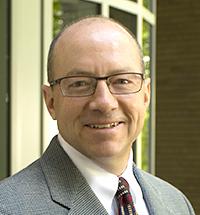We sat down with Professor Sean Nicholson to talk about his journey from being an undergraduate at Dartmouth College to becoming a Professor at Cornell University in the Department of Policy Analysis and Management (PAM). Professor Nicholson received a Bachelor of Arts in Economics at Dartmouth College in 1986. Upon graduating, he worked at APM, Inc. as a consultant for four years and then as a math teacher at Worcester Academy for two years. He then went back to school at the University of Wisconsin-Madison in 1997 to obtain a Ph.D. in economics. Professor Nicholson often gives advice to undergraduates about life after college and was very willing to share his life wisdom and career advice with us. Here are some highlights from our conversation:
How did he develop his interest in health care economics?
Growing up, Professor Nicholson’s father, who had a Ph.D. in economics, influenced him to think and talk like an economist. Professor Nicholson entered college with an intended major in economics and grew to like the subject more throughout his years as an undergraduate. On the other hand, his career in health care was not something he deliberately planned, but instead happened “fortuitously.” Out of college, Professor Nicholson wanted to be a management consultant because he saw the job as a way to learn business and responsibilities quickly. Out of the firms he applied to, only APM, Inc., a healthcare consulting firm, offered him a job. Professor Nicholson entered his first job armed with an economic background and was able to combine his two interests, economics and healthcare, as a consultant. He was captivated by healthcare after being exposed to the poor management of hospitals and quickly became fascinated by the relationship between the reliance on physicians and hospital systems. Additionally, he excelled in the healthcare sector and was able to gain field related expertise that allowed him to further his interest in the field.
How would he describe his undergraduate self vs. his current self, and what did he see as his future career?
Professor Nicholson described his undergraduate self as being less aware of the outside world. He believes that as he grew older, he appreciated the fact that the real world is a more heterogeneous environment. In society, he realized that people thought and cared about different things.
As an undergraduate, Professor Nicholson thought that after graduation he would be going to business school; however, he was not accepted into the schools he applied to, and in hindsight he believes that he was not ready. Looking back at his college graduate days, Professor Nicholson concluded that he wouldn’t have been able to make the most out of his business school experience because he had no professional background in the field.
From this experience, Professor Nicholson believes that a lot of things work out for a reason. In his life, getting a consulting job, though not what he intended to do originally, was more fitting than going to business school and not getting accepted may have been for the best.
How did Professor Nicholson transition across different career fields and what were the lessons he learned from each stage?
As a consultant, Professor Nicholson had a lot of responsibilities that allowed him to learn how to work and contribute in a team with superiors that were older than him. Additionally, he improved his public speaking skills and learned how to present in front of senior consultants and fellow co-workers. As a teacher, Professor Nicholson said that he gained confidence by taking charge of the classroom setting.
He has carried a majority of these skills into his current occupation as a professor. Though he no longer has to take control of a classroom setting because students in his lectures all want to be there and learn, Nicholson says he uses skills he learned from working on a team to run his research lab as well as the SLOAN program. Additionally, he believes that many issues on a team can be resolved through proper management, which is a skill he learned from his previous jobs.
How does he think Cornell prepares students for the real world?
In Nicholson’s opinion, Human Ecology is an unique combination of five majors that works well because it allows students to learn a diverse set of topics that are connected by a commonality. Students receive an interdisciplinary education from professors in the college that have a wide array of expertises and experiences.
Final words to the class of 2018?
Professor Nicholson says he often has undergraduates in his office who are stressed because they can’t find a job. What he tells his students is that many of his friends who have been out of college for 30 years are probably on their 5th, 6th, or 7th job. He says, “It is almost impossible for your first job to be a bad one.” Nicholson believes that students need to figure out early on “What do you like” and “what are you good at.” Even if the first job is not something that a student likes or is good at, the student can still learn a lot. Nicholson says to think back on the experience and distinguish aspects that the student liked or was good at. He then advises students to look for careers that fit the likeable categories and expertises.Though Professor Nicholson’s career path was a series of fortuitous events and his pathway was dependent on his first job, he still believes that students should “not sweat too much about their first job” because he could not have predicted his career trajectory.
Finally, Nicholson believes that for a first job, students should not worry too much about the salary. Nicholson says that the money students make when they are 22 or 23 “is about 1% of their entire life’s income.” In the longer run, students will be paid their just compensation.
Thank you Professor Nicholson for his wise advice to the class of 2018! Good luck!

